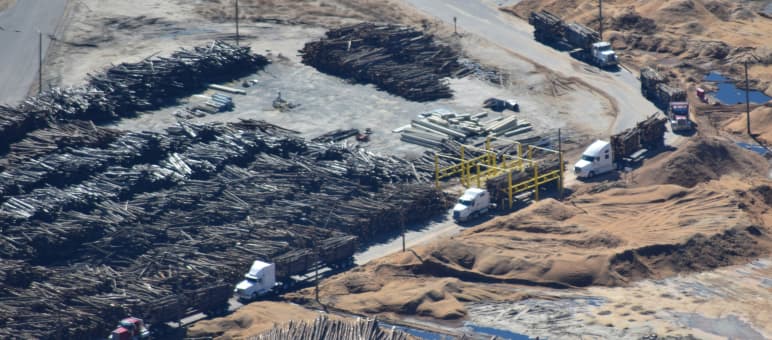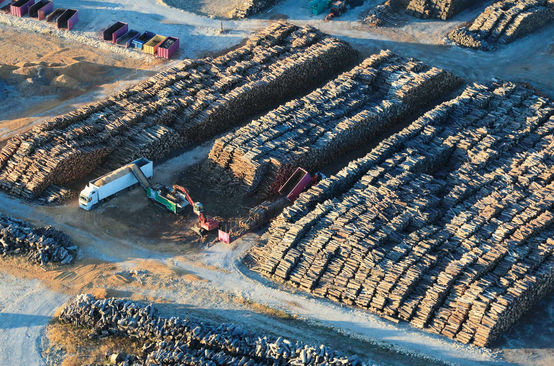
Study on EU biofuel use: burning wood harms the climate
A new study by British forestry authorities warns that the EU’s bioenergy plans will result in increased carbon emissions. According to the experts, burning wood for heating and power generation actually emits more greenhouse gases than fossil fuels.
The EU wants to mitigate global warming by boosting energy production from biomass. But according to a new study by Forest Research, the research agency of the British Forestry Commission, the production and burning of biomass releases even more carbon than the fossil fuels it replaces.
The new report partially corrects a previous research project (“Carbon Impacts of Biomass Consumed in the EU”) carried out by the agency on behalf of the European Commission. The findings of the previous project provided the key underpinnings of the EU’s bioenergy plans.
The report was released just in time to contribute to the EU’s current debate on future energy policy: On May 31, 2018, representatives of the 28 EU Member States, the European Parliament and the European Commission met for “trilogue” negotiations on the new Renewable Energy Directive. And on June 11, the Member States will discuss energy policy in a further council meeting.
Burning wood to generate electricity and heat will play a central role in this debate. Two-thirds of the EU's renewable energy is generated by burning wood and other biomass. While wind, solar and hydropower loom large in the public's awareness, they only account for only one third of the non-fossil energy consumed in the EU.
Instead of gearing forest management policy to maximize wood production for the energy sector, the EU needs to drastically reduce its energy consumption.
Please speak out against the EU’s misguided bioenergy plans and sign our petition: Burning wood for “green” power? No thanks!

Burning wood for “green” power? No thanks!
Europe currently deciding on the expansion of renewable energy, with wood slated as the main biofuel. Tell the EU to stop incinerating our forests for “green” power”!

Biofuel
The use of bioethanol and biodiesel in motor vehicles is a misguided attempt to save the climate. The ugly reality is that "green" fuels are destroying rainforests, accelerating climate change and condemning millions to poverty and hunger.